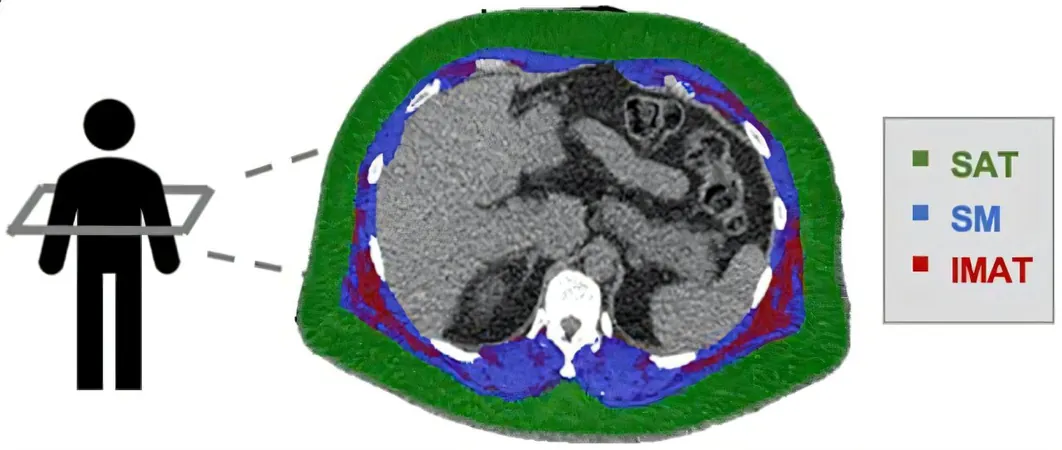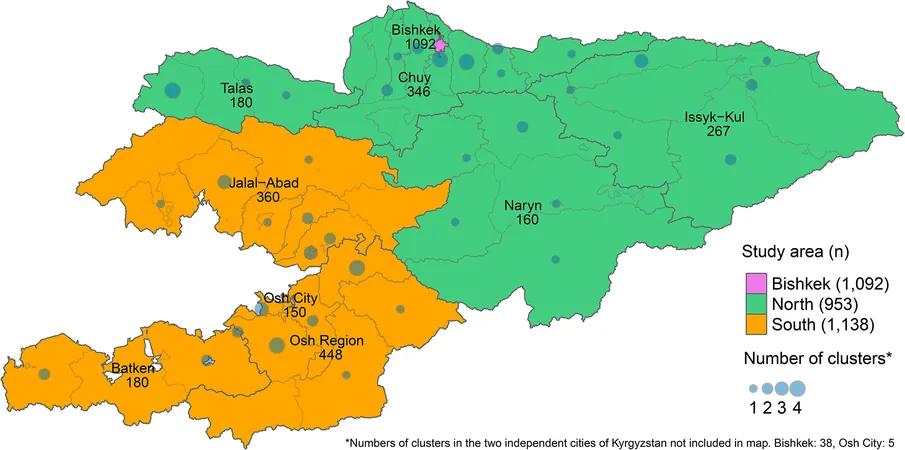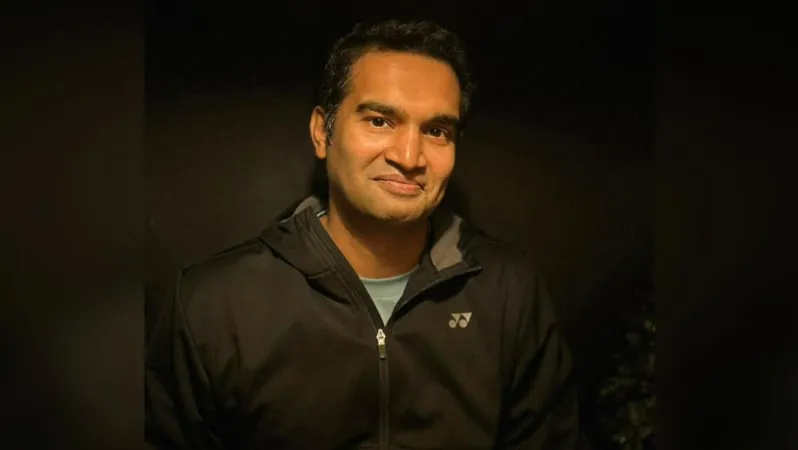
Tragic Loss: Renowned Cancer Researcher Felix Y. Feng, MD, Passes Away at 48
2025-01-22
Author: Jia
Felix Y. Feng's Contributions to Cancer Research
In a heartbreaking announcement, Felix Y. Feng, MD, a leading figure in radiation oncology and genitourinary cancer research, succumbed to cancer on December 10, 2024, at the young age of 48. His contribution to medicine and cancer research will leave an enduring legacy.
Dr. Feng held numerous prestigious titles at the University of California, San Francisco (UCSF), where he was the vice chair for translational research in the Department of Radiation Oncology, the George and Judy Marcus Distinguished Professor, and the director of the Benioff Initiative for Prostate Cancer Research. His dedication to advancing GU cancer care and research was evident in his work, particularly in the areas of translational genomics and preclinical therapies targeting prostate cancer. Feng’s research aimed not only to identify new biomarkers for prognosis and treatment prediction but also to combat treatment resistance that many patients face.
Tributes from Colleagues
Colleagues and friends admired Dr. Feng not just for his exceptional scientific capabilities but for his talent in fostering collaboration and community within the scientific realm. "Felix Feng was a once-in-a-generation scientist whose insights resulted in remarkable accomplishments," noted Eric J. Small, MD, deputy director at the UCSF Helen Diller Family Comprehensive Cancer Center. "His legacy will resonate within our community and beyond."
Early Life and Education
Born and raised in Palo Alto, California, Feng earned his bachelor's degree from Stanford University in biological sciences with distinction and later pursued his medical degree at Washington University in St. Louis. His early career included significant roles at the University of Michigan, where he made notable contributions to the field of radiation oncology before joining UCSF in 2016.
A Remarkable Career
Throughout his illustrious 22-year career, Feng published an impressive 434 scientific articles, establishing himself in the top 1% of scientists in the U.S. His innovations earned him multiple accolades, including the ASTRO Clinical Science Award and the ASTRO Mentorship Award, recognizing his dedication to nurturing the next generation of oncologists.
Legacy and Impact
In 2024, the American Society for Clinical Oncology announced the creation of the Felix Feng Prostate Cancer Young Investigator Award to support emerging researchers in the field, solidifying his impact on prostate cancer research even after his passing. His vision encompassed a blend of genomic data and experimental biology, allowing for groundbreaking advances in treatment methodologies for prostate cancer.
Innovative Research Approaches
Dr. Feng was not merely a researcher; his work crossed the boundaries of clinical practice and scientific inquiry. Jonathan Chou, MD, PhD, described him as a "true renaissance man," whose innovative approaches to 3D chromatin analysis and artificial intelligence integration within prostate cancer research were paving the way for future treatments.
A Lasting Void in Cancer Research
Sadly, the world of cancer research has lost a brilliant mind, but the influence of Dr. Feng’s work will carry on, inspiring future generations of scientists and oncologists to fight against prostate cancer and improve patient outcomes. The upcoming Feng Symposium, set to take place in February 2025, will honor his legacy by gathering a diverse group of researchers to further the quest for innovative prostate cancer therapies.
As we reflect on the life and contributions of Felix Y. Feng, we are reminded of the profound impact one individual can have on an entire field, and the void left by his loss will be felt deeply across the medical community.





 Brasil (PT)
Brasil (PT)
 Canada (EN)
Canada (EN)
 Chile (ES)
Chile (ES)
 Česko (CS)
Česko (CS)
 대한민국 (KO)
대한민국 (KO)
 España (ES)
España (ES)
 France (FR)
France (FR)
 Hong Kong (EN)
Hong Kong (EN)
 Italia (IT)
Italia (IT)
 日本 (JA)
日本 (JA)
 Magyarország (HU)
Magyarország (HU)
 Norge (NO)
Norge (NO)
 Polska (PL)
Polska (PL)
 Schweiz (DE)
Schweiz (DE)
 Singapore (EN)
Singapore (EN)
 Sverige (SV)
Sverige (SV)
 Suomi (FI)
Suomi (FI)
 Türkiye (TR)
Türkiye (TR)